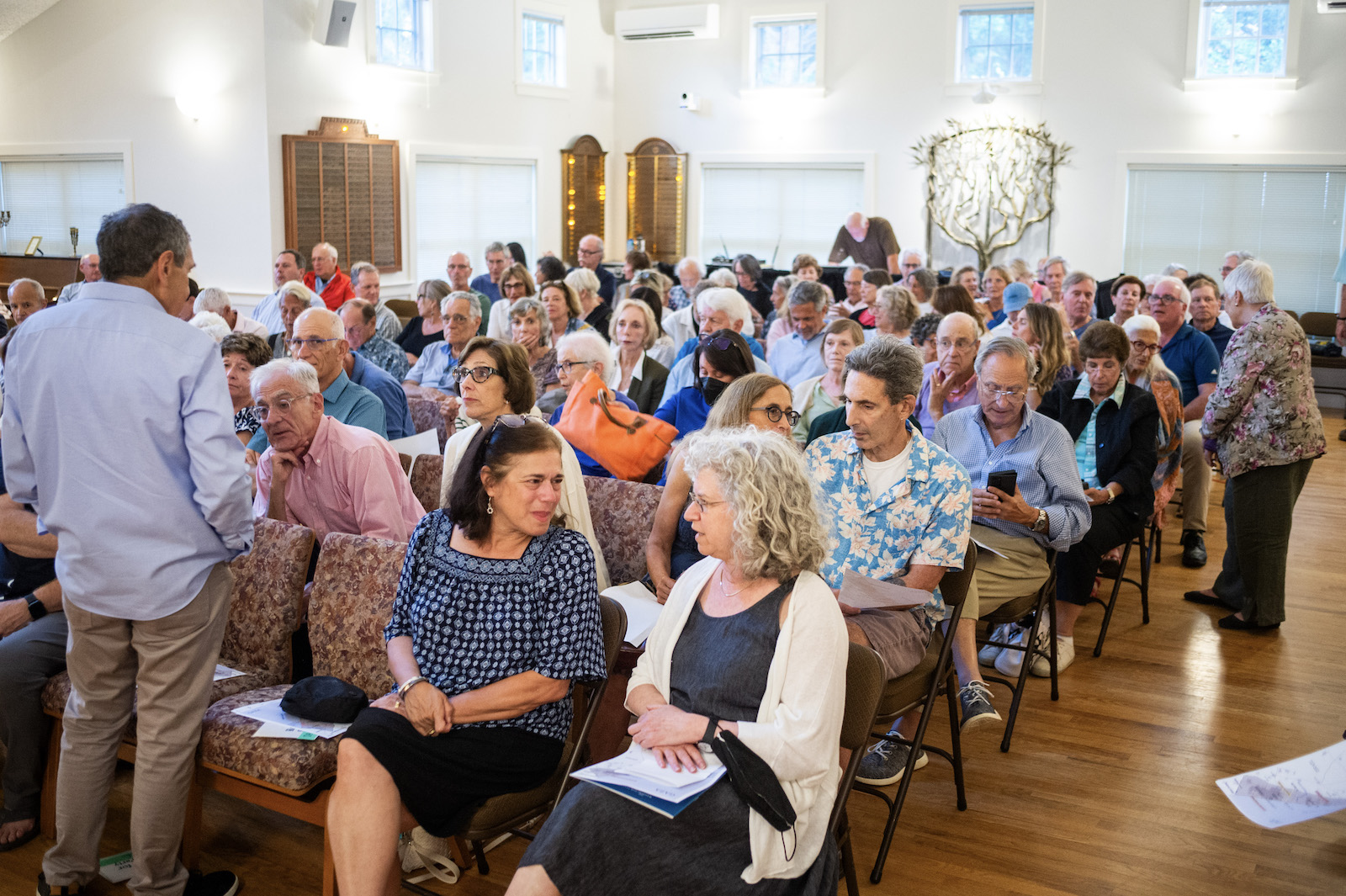Before a packed house at the Martha’s Vineyard Hebrew Center Thursday, professor David Makovsky wanted people to believe there was a way forward for peace in the Middle East.
Standing at the podium as part of the Summer Institute Speaker Series, Mr. Makovsky, who worked as a senior advisor to the special envoy of Israeli-Palestinian negotiations at the U.S. Secretary of State, talked about the U.S.’s relations with Israel and the complexities of peace in the region.
During the 90 minute-long talk, Mr. Makovsky, a fellow at the Washington Institute and an adjunct professor in Middle East studies at Johns Hopkins University, laid out what different leaders may be thinking, talked about the October 7 Hamas attack and raised the potential for hostage exchanges between Hamas and Israel.
While the Israeli defense establishment is “all cut for the deal,” Israeli Prime Minister Benjamin Netanyahu would rather continue putting pressure on Hamas, according to Mr. Makovsky.
“That’s really what the administration wants, [which] is looking for an off ramp off the Gaza war, cooling off the north and pivoting,” he said.
Much of the Israeli public remains focused on the October 7 attack, Mr. Makovsky said, but for the families of the hostages, time is running out.
“I think for the Israeli public, for the most part, time stands still,” he said. “I think the clock is not frozen at all, but ticking very loudly and quickly if you’re a family of a hostage in Israel.”
Mr. Makovsky, who has written several books on the Middle East, also offered insight into the thinking of other countries in the region.
“From Iran’s point of view, they want to calibrate this in a way that Israel feels constant pressure, but that there’s not a World War III or regional war in the Middle East that is uncontrollable,” he said.
Mr. Makovsky added that detailing the possible, complicated paths forward was intentional on his part.
“I don’t want to make it easy for any of you,” he said. “I want to make it hard. I want you to understand what’s really happening, but really getting inside the guts of these decisions.”
After a short question and answer session, he talked about his hopes for moving forward.
“I think it’s just too important for those people [to give up],” he said. “For those of us who believe in Arab Israeli coexistence... it might be a messy patchwork situation, but I think it’s better than the alternatives.”







Comments
Comment policy »